- Home
Page 3
Page 3
 A Perilous Journey
A Perilous Journey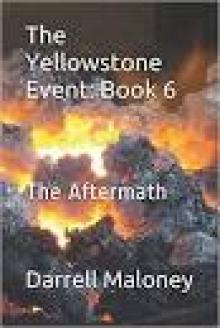 The Yellowstone Event: Book 6: The Aftermath
The Yellowstone Event: Book 6: The Aftermath Eden Bound
Eden Bound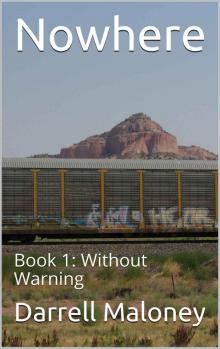 Without Warning
Without Warning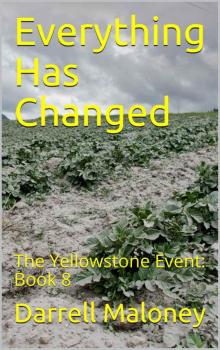 Everything Has Changed
Everything Has Changed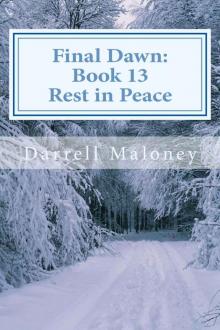 Rest in Peace
Rest in Peace This Changes Everything
This Changes Everything The Final Chapter
The Final Chapter It Can't Be Her
It Can't Be Her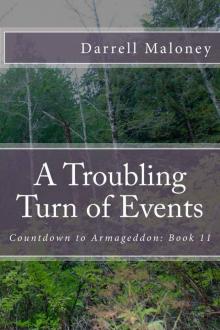 A Troubling Turn of Events
A Troubling Turn of Events The Blockade
The Blockade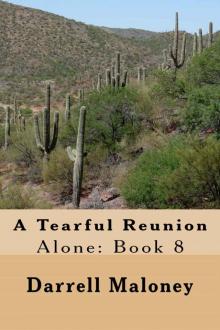 A Tearful Reunion
A Tearful Reunion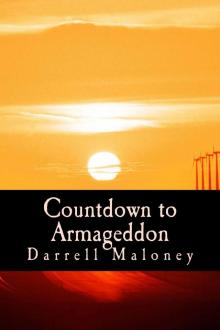 Countdown to Armageddon
Countdown to Armageddon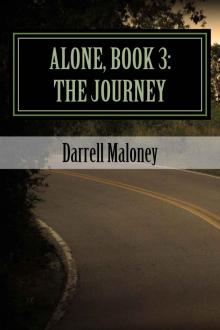 Alone, Book 3: The Journey
Alone, Book 3: The Journey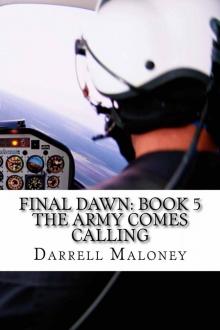 The Army Comes Calling
The Army Comes Calling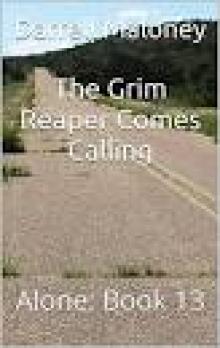 The Grim Reaper Comes Calling
The Grim Reaper Comes Calling Her Name is Beth: Alone: Book 5
Her Name is Beth: Alone: Book 5 Red: The Adventure Begins
Red: The Adventure Begins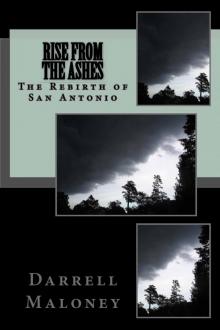 Rise From The Ashes: The Rebirth of San Antonio (Countdown to Armageddon Book 3)
Rise From The Ashes: The Rebirth of San Antonio (Countdown to Armageddon Book 3) An Unkind Winter (Alone Book 2)
An Unkind Winter (Alone Book 2) A Stunning Betrayal: Alone: Book 9
A Stunning Betrayal: Alone: Book 9 A Whole New World: Ranger: Book 2
A Whole New World: Ranger: Book 2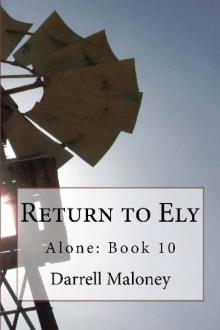 Return To Ely
Return To Ely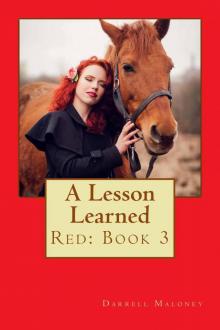 A Lesson Learned: Red: Book 3
A Lesson Learned: Red: Book 3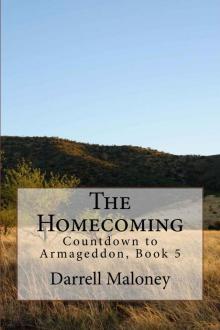 The Homecoming: Countdown to Armageddon: Book 5
The Homecoming: Countdown to Armageddon: Book 5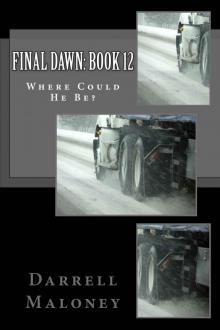 Final Dawn: Book 12: Where Could He Be?
Final Dawn: Book 12: Where Could He Be?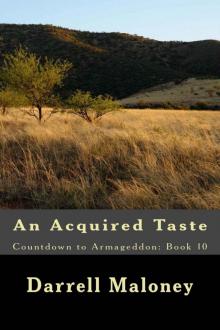 An Acquired Taste
An Acquired Taste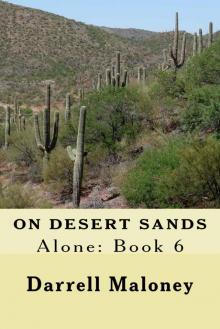 On Desert Sands: Alone: Book 6
On Desert Sands: Alone: Book 6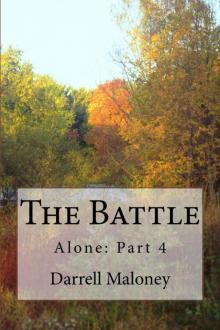 The Battle: Alone: Book 4
The Battle: Alone: Book 4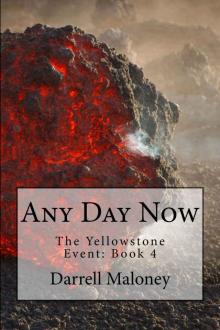 Any Day Now
Any Day Now Too Tough To Tame: Red: Book 2
Too Tough To Tame: Red: Book 2 No Help From Austin: Red: Book 5
No Help From Austin: Red: Book 5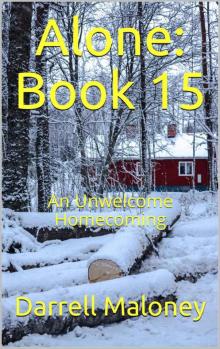 An Unwelcome Homecoming
An Unwelcome Homecoming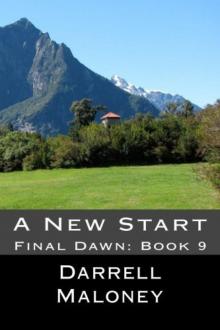 A New Start: Final Dawn: Book 9 (Volume 9)
A New Start: Final Dawn: Book 9 (Volume 9) A Stunning Betrayal
A Stunning Betrayal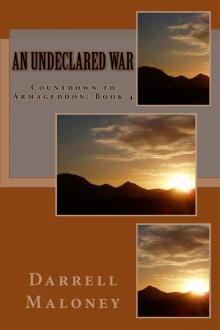 An Undeclared War (Countdown to Armageddon Book 4)
An Undeclared War (Countdown to Armageddon Book 4)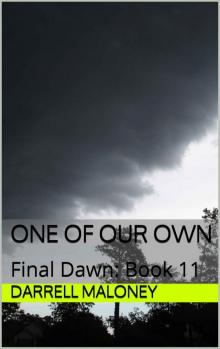 One of Our Own: Final Dawn: Book 11
One of Our Own: Final Dawn: Book 11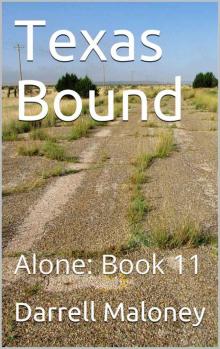 Texas Bound: Alone: Book 11
Texas Bound: Alone: Book 11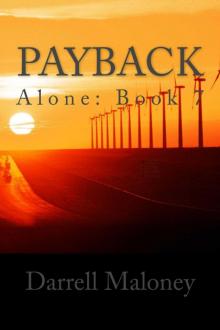 Payback: Alone: Book 7
Payback: Alone: Book 7 The Quest: Countdown to Armageddon: Book 6
The Quest: Countdown to Armageddon: Book 6 The Siege
The Siege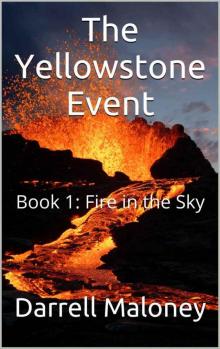 The Yellowstone Event: Book 1: Fire in the Sky
The Yellowstone Event: Book 1: Fire in the Sky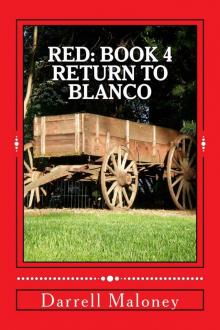 Return to Blanco (Red Book 4)
Return to Blanco (Red Book 4) The Search
The Search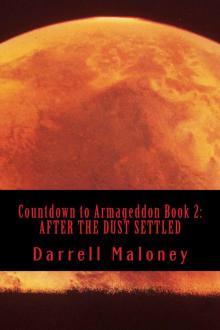 AFTER THE DUST SETTLED (Countdown to Armageddon Book 2)
AFTER THE DUST SETTLED (Countdown to Armageddon Book 2) Death Comes Calling (Ranger Book 3)
Death Comes Calling (Ranger Book 3)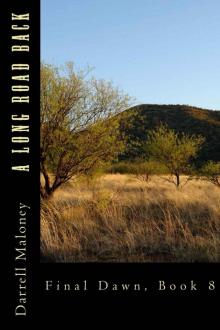 A Long Road Back: Final Dawn: Book 8
A Long Road Back: Final Dawn: Book 8